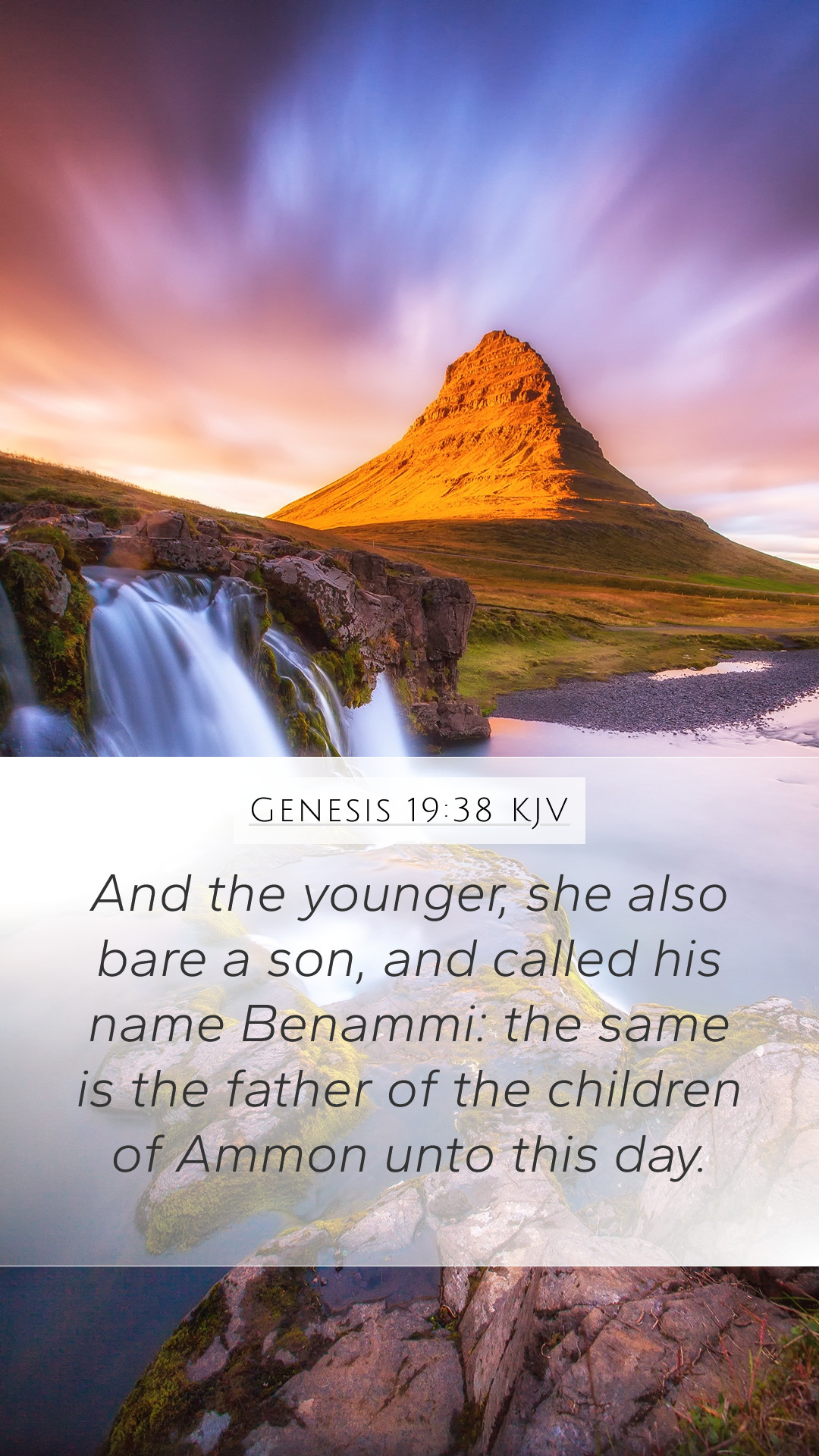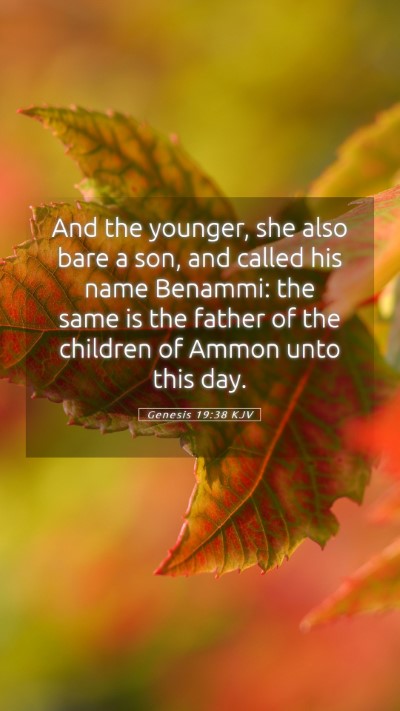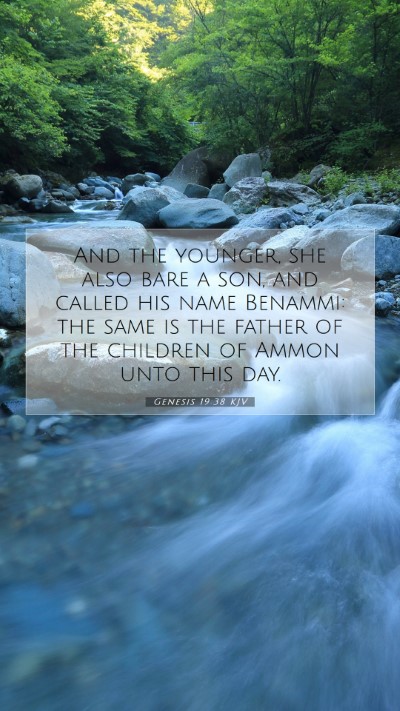Understanding Genesis 19:38: A Comprehensive Bible Verse Commentary
The passage of Genesis 19:38 presents a significant moment in the narrative of Lot and his daughters following the destruction of Sodom and Gomorrah. This verse states:
"And the younger daughter bore a son and called his name Ben-Ammi. He is the father of the children of Ammon to this day."
Verse Meaning and Interpretation
We can glean a variety of insights from the commentaries of Matthew Henry, Albert Barnes, and Adam Clarke, emphasizing both the immediate context and broader implications of this verse.
Contextual Background
After the events of Sodom's destruction, Lot and his daughters find themselves in a precarious situation. In a state of isolation and desperation, the actions taken by the daughters reflect the cultural and familial crisis they experienced.
Matthew Henry's Commentary
- Theological Implications: Matthew Henry asserts that the act of incest, while morally reprehensible, serves as a pivotal moment in the history of Israel's neighboring nations, particularly the Ammonites.
- Human Nature: He emphasizes the depravity of human nature and how fear can drive individuals to commit acts against God's design.
- God's Sovereignty: Despite the grim circumstances, Henry points out that God's plan unfolds even through human failings, indicating that He can bring about His purposes through flawed individuals.
Albert Barnes' Insight
- Identity of Ben-Ammi: Barnes discusses the name Ben-Ammi, meaning "son of my people," highlighting the idea that through his lineage, the Ammonites would emerge as a separate people.
- Historical Significance: He reflects on how this event lays the foundation for future conflicts and relationships between Israel and its neighbors.
- Lessons on Consequences: The circumstances surrounding this birth serve as a cautionary tale regarding the choices we make and their long-lasting implications.
Adam Clarke's Commentary
- Familial Relationships: Adam Clarke analyzes the complex dynamics within Lot's family, particularly the desperation of the daughters to preserve their family line, albeit through sinful means.
- Ethical Considerations: Clarke delves into the moral ambiguities presented in the text, calling attention to how such narratives compel readers to confront their understandings of right and wrong.
- Broader Theological Reflection: He concludes with an observation on God's mercy, suggesting that even from a sinful act, divine providence can occur, leading to eventual redemption and hope.
Application of Genesis 19:38
This verse prompts believers to reflect on the depths of human despair, the consequences of our choices, and the understanding that God can work through even the most flawed circumstances.
Helpful Bible Study Resources
- Bible Study Tools: Utilize various tools such as concordances and commentaries to deepen understanding.
- Online Bible Study Groups: Join discussions focusing on interpretations of difficult passages like Genesis 19:38.
- Bible Study Guides: Refer to structured guides that facilitate engagement with the Scripture.
- Discussion Lessons: Explore lessons that incorporate ethical and theological reflections from this verse.
Cross References
- Genesis 19:30-36: Further details on the actions of Lot's daughters.
- Deuteronomy 2:19: Discusses the Ammonites and their relationship to Israel, originating from Ben-Ammi.
- Romans 5:20: Reflects on how grace abounds where sin increases, tying back to the themes of human fallibility in this narrative.
Final Thoughts
In summary, Genesis 19:38 serves as a profound reminder of human complexity, the potential for redemption, and the unfolding of God's plan, despite human error. By engaging deeply with this passage through Bible verse interpretations and Bible verse explanations, we can gain valuable insights that apply to our lives today.


